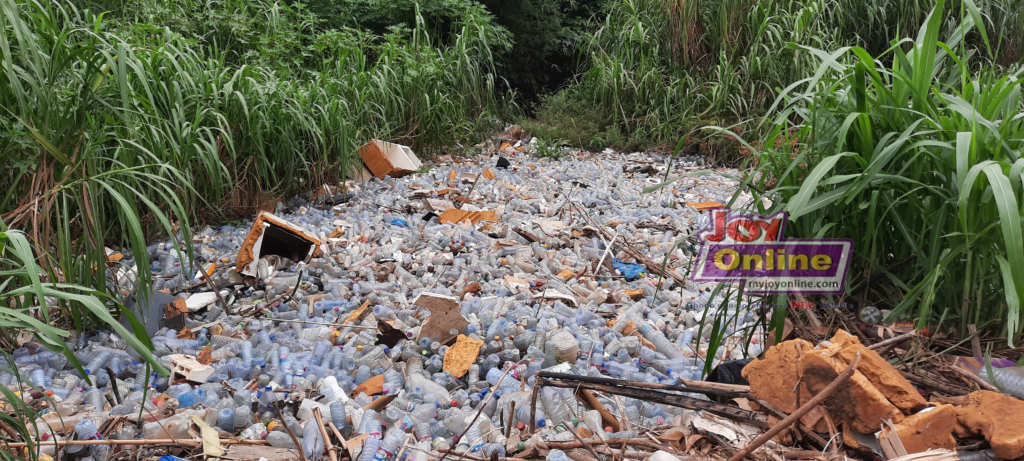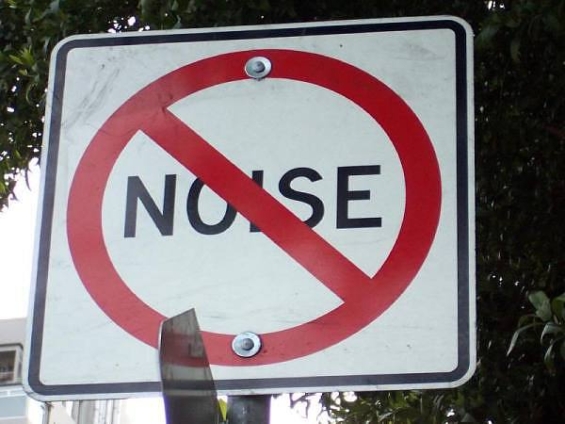When I reported in 2018 that in Ghana, there were human beings who eat cooked food sold near public toilets overflowing with human excreta, someone replied. “The very thought of food close to putrefaction caused ‘my inside’ to heave. I threw up.” He described that sort of life as “sub-human”.
But it exists because Ghana is a democracy where election victory is determined by the mass of people for whom chaos and filth are normal.
We have lost the war against noisy religiosity.
Let’s ask ourselves, “Why have our governments or city authorities lost the war against noise while it is so easy for Ga and Nzema traditional areas to enforce a ban on noise before Homowo and Kundum and in certain cases, a whole city, because a queenmother or a chief is to be buried?
I heard one Muslim ask on TV: “Without the call to prayer through loud speakers, how else can we gather and pray?” My reaction was a question: How are Muslims in Sweden, the UK, etc, called to pray?
A friend in the UK (a Ghanaian) says he has never heard the Muslim call to prayer ever since he entered that country 20-plus years ago.
In London, he says, neighbours would call in the police to measure noise levels from buildings being used for Christian services. If the unbearable noise persists, action follows.
Not in Ghana. My beef is the use of loud speakers in churches whose ‘auditoriums’ are no bigger than three metres square. The message seems to be: “The noisier the holier”.
See what elections have reduced us to!
I fear where Rwanda’s President Paul Kagame will be headed after death. Hell? On April 4, 2018, Kegame closed hundreds of churches and dozens of mosques for failing to comply with building controls and for noise pollution. Six Pentecostal pastors who protested the church closures were arrested and accused of “illegal meetings with bad intentions.”
In the same year (2018), Rwanda passed a law that required pastors to have a Theology degree before they start their churches “so that they teach correct doctrine.”
Drastic? I don’t think so. Ghana needs this law. We need to be protected against ourselves: our illiteracy has conspired too long with our inherent superstitious nature to render us too vulnerable.
The Rwandan government has also banned mosques from using loudspeakers during the call to prayer in the capital city, Kigali. There were initial noises against the ban, but by and large, the Muslims in the country have complied.
How do I recognise a democracy?
When government moves to ensure that the health of individuals, or the majority of the people, is protected against filth, that is democracy; when city guards are sent to rid the streets of hawkers, making it possible for the majority of citizens to enjoy unimpeded movement in the streets that is democracy; when squatters are cleared from sites meant for national structures to ensure the greater good of the greater majority of the people, that, too, is democracy.

In Singapore (a Third World country), people who put spent chewing gum anywhere other than in a bin are fined S$100 (100 Singapore dollars), and those who fail to flush a public lavatory are fined S$100. That is democracy.
In Rwanda, Paul Kagame has been criticized and insulted; his actions have been labeled authoritarian. That criticism is coming from the same people who did not see wisdom in his ban on plastic bags in 2008 but are today hailing Kigali for becoming the first city in Africa to be awarded the Habitat Scroll of Honor in recognition of its “cleanliness, security and urban conservation model.”
When Ban Ki-Moon, former UN Secretary General, visited Rwanda in 2014, he could not hold his tongue. He confessed openly that he had travelled to many places, “but Kigali is one of the cleanest cities in the world.” This was a country which, only 10 years earlier, was the dirtiest in Africa. It took leadership.
In 2015, Ghana was ranked the 7th dirtiest country in the world. It was the reason why on March 31, 2015, the World Bank, acting as administrator of the Global Partnership on Output-Based Aid (GPOBA), signed a $4.85 million grant agreement with the Government to provide sustainable toilet facilities in low income areas of Greater Accra. Justification for the grant was that “about 50 percent of households in the Accra metropolitan region”.
In 2017, Akufo-Addo promised to make Accra the cleanest city in Africa! Eight years have passed. He and two or more “successful” Ministers for Sanitation have left. We rank no better in noise and filth.
It takes leadership. I have seen governments in Ghana attempt to move against congestion and noise pollution. Fear of losing the election stopped them.
In Ghana, the only way to win this war is when sanitation and noise become election issues for Makola and Kejetia market women, trotro and taxi drivers, kayayei, etc.
Latest Stories
-
Domestic Gold Purchase Programme: BoG’s reserves increase by 100% within 5 years
11 minutes -
Rotary Club of Ho Inspires Kpogadzi Children with Robotics and STEM Skills
15 minutes -
Domestic Gold Purchase Programme has helped stabilise cedi, ease inflation – First Deputy Governor
23 minutes -
NPP Ashanti commiserates with Obogu Saviour Church over tragic loss of 16 children
26 minutes -
The Prophecy Clearance House: Now Open for National Business
35 minutes -
$2 trillion in reparations can defray Africa’s debts
45 minutes -
Today’s Front pages: Monday, August 11, 2025
48 minutes -
Helicopter crash victims: Let us honour their memories – Mahama
57 minutes -
NDC offers GH₵60k support to Obogu crash victims’ families and the church
1 hour -
Prof Robert Darko Osei named new ISSER Director, takes over from Prof Peter Quartey
1 hour -
National loss, personal pain: The families we must not forget
1 hour -
Augustine Boakye stars with goal and assists as Ebenezer Annan makes Saint-Etienne debut
1 hour -
GPCC says it has not received a formal notice on national prophecy directive
1 hour -
Helicopter crash: Cherish one another, life is uncertain – Shamima Muslim
1 hour -
Devastating news: A nation in grief
1 hour

